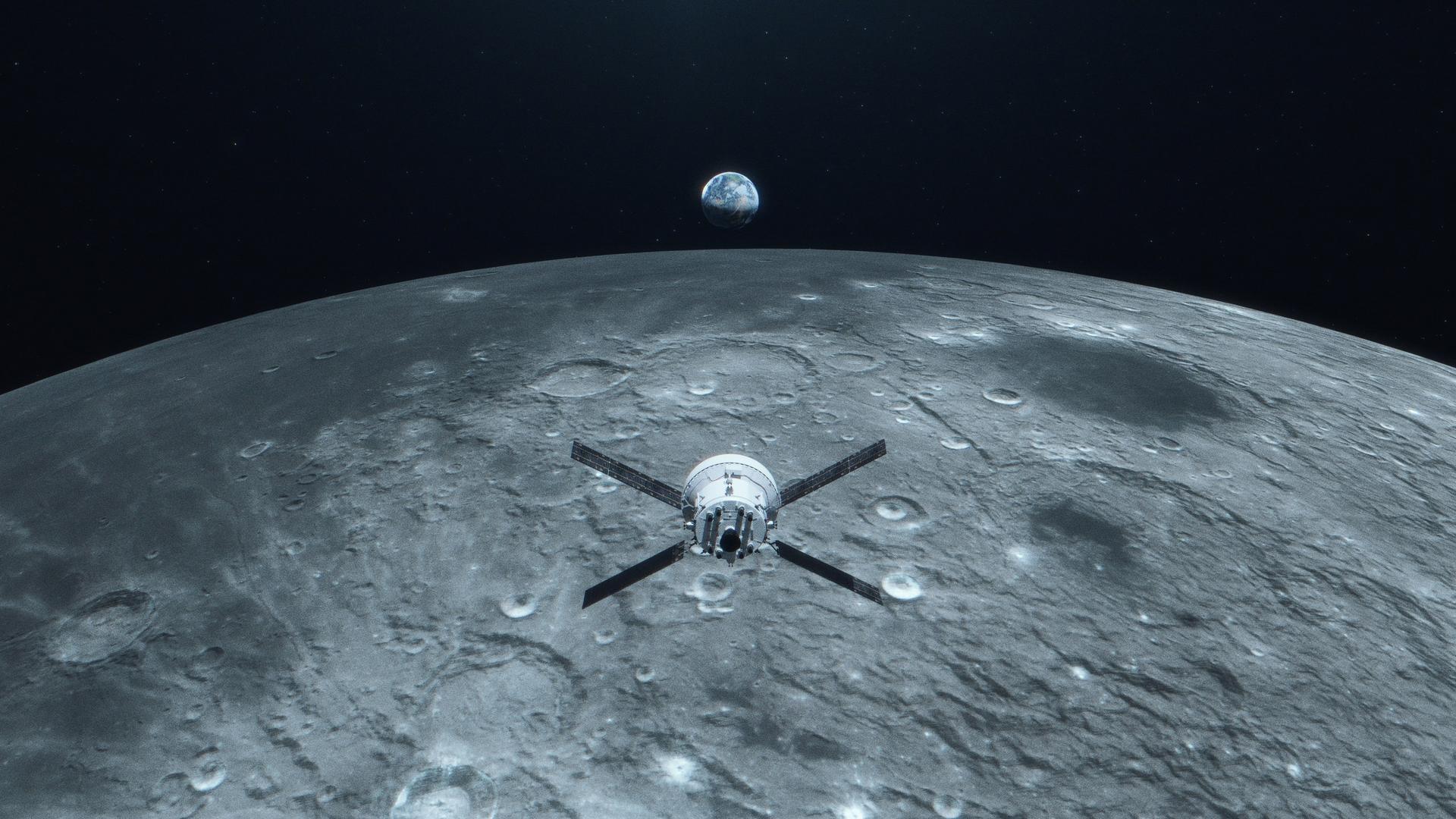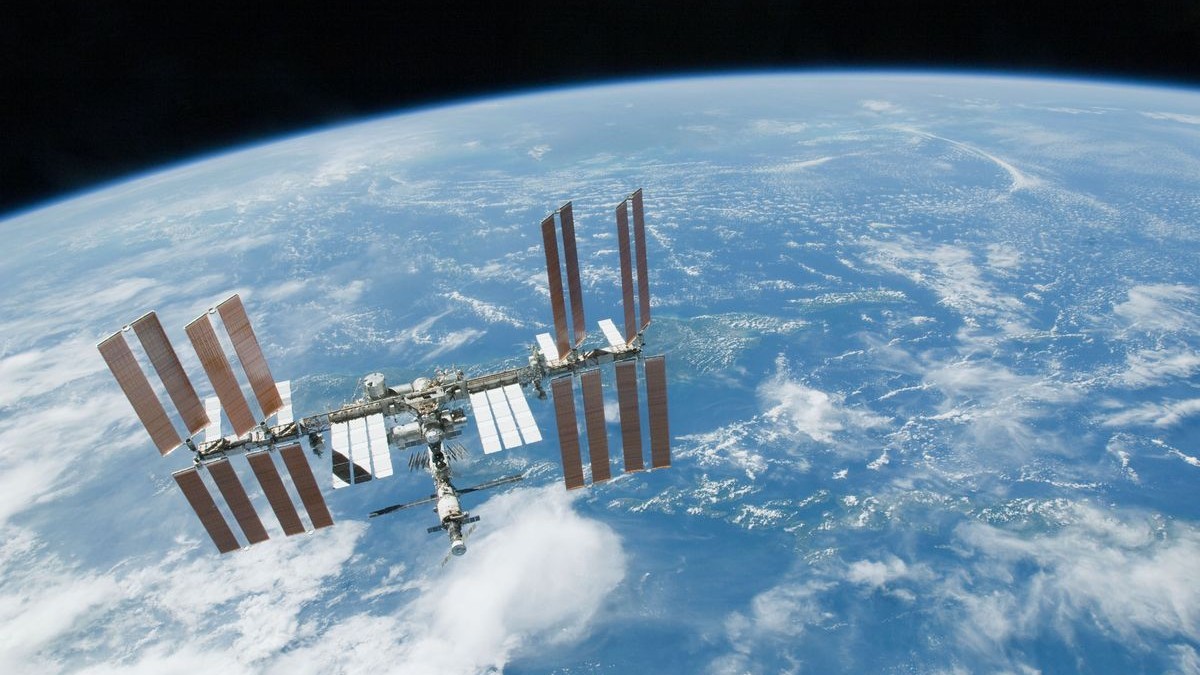
The new space race: International partnerships (op-ed)
The evolution from competition to collaboration represents a significant paradigm shift in how we approach the final frontier.

Charles Bolden served as the 12th NASA Administrator, making him only the second astronaut to hold that position. Bolden is the Founder & CEO Emeritus of The Charles F. Bolden Group
Ambassador Stuart Holliday served as United States Ambassador for Special Political Affairs at the United Nations (2003-2005) after the President's nomination and the Senate's confirmation. Holliday is CEO of Meridian International Center, a leading non-partisan institution advancing global security and prosperity through effective leadership and diplomacy.
President Joe Biden's announcement in April 2024 that Japanese astronauts will join an upcoming Artemis mission marked a significant milestone. For the first time, a non-American will set foot on the moon, marking a new era of international cooperation in space exploration.
Prior to that, a United Nations resolution proposed by the U.S. and Japan to prevent the development of nuclear arms in outer space, calling on all nations to not deploy any weapons of mass destruction per a 1967 treaty. Russia vetoed the resolution – a reminder of the ongoing risk of space turning into a battleground. These recent developments underscore the critical role of diplomacy and strategic international partnerships in the evolving space age.
The space race of the 20th century, characterized by rivalry and high barriers to entry, has transformed. The playing field has widened and the absence of traditional gatekeepers in space opens unparalleled opportunities for collaboration. The United States now finds itself at the helm, steering an international coalition that includes traditional allies, emerging space nations, and innovative private entities, through the complex political terrain of outer space. This evolution from competition to collaboration represents a significant paradigm shift in how we approach the final frontier.
Over the past 50 years, space exploration has offered humanity a platform to confront some of our most pressing challenges. From climate change research and enhancing global communication networks to advancements in health care through zero-gravity research, space has proven indispensable to innovation and development.
By expanding internet access to regions with limited telecommunications infrastructure, projects like SpaceX's Starlink or the Arctic Satellite Broadband Mission are integrating remote communities into the global economy at an unprecedented scale. These breakthroughs are only possible through the partnership with the private sector.
Get the Space.com Newsletter
Breaking space news, the latest updates on rocket launches, skywatching events and more!
As the era of the International Space Station (ISS) draws to a close, the development of private space stations and the rise of commercial space activity signals a new phase of diplomatic activity in orbit with companies like Axiom Space spearheading the launch of its first module to the ISS in 2026 and the late-2020s for station completion. This shift requires a significant increase in collaboration between governments and the private sector to ensure space remains secure, sustainable and can continue to provide critical benefits to all of society.

However, current space governance frameworks, including the 1967 United Nations Outer Space Treaty, are outdated and no longer reflect the realities of today's space activities and technologies. The U.S. created the Artemis Accords in 2020, a non-binding set of principles and guidelines to promote a sustainable and cooperative future in space that has garnered 39 signatories thus far to begin addressing this gap. The Hague Institute for Global Justice's Washington Compact attempts to introduce private sector norms, recognizing the importance of corporate diplomacy to ensure the stability of a privatized low Earth orbit (LEO) environment.
However, space is not a unipolar system, and rival coalitions and alternative norms are emerging across the Global South. The U.S. Department of State released its first Space Strategic Framework in 2023 and began their annual Space Diplomacy Week to expand the base of likeminded space faring nations and outlines how we can promote responsible behavior from all space actors. From a U.S. perspective, it is imperative to build relationships with emerging spacefaring nations and encourage them to adopt democratic practices.
The U.S. has prioritized the African continent's space economy, with Rwanda, Nigeria, and Angola all joining the Artemis Accords. However, other African countries—those pursuing BRICS membership—have elected to engage in space partnerships with China instead. Chinese ambitions to become the leading force on the moon through its International Lunar Research Station have generated concerns about sovereign claims in space, which the Outer Space Treaty strictly prohibits.
Practical modern-day statecraft should follow the principle of open diplomacy—that governments alone cannot maintain relations with other nations. Global business executives, state and local leaders, scientists, and technologists must collaborate to shape international affairs.
This also applies to space missions. Although astronauts are critical and often serve as the face of the mission, an entire supply chain got them there in the first place. Think about the scientists and engineers at mission control. The private companies contracted to participate in the mission through public-private partnerships. The foreign countries jointly fund the mission. The mission’s success is contingent on the level of communication and trust between these actors, which diplomacy aims to facilitate.
The U.S. is responsible for ensuring equitable access to STEM education and diplomatic skills training across the country so that our space workforce is more representative of all Americans and equipped with the tools needed to represent our country in space.
In this era of immense possibilities in space exploration, it is imperative that we adopt a united, diplomatic approach towards securing our space frontier. By fostering collaboration among nations, industries, and innovators, we not only safeguard the future of space, but also pave the way for a more interconnected and prosperous world and an unprecedented era of cooperation.
Join our Space Forums to keep talking space on the latest missions, night sky and more! And if you have a news tip, correction or comment, let us know at: community@space.com.
Charles Bolden served as the 12th NASA Administrator, making him only the second astronaut to hold that position. While heading NASA, Bolden oversaw the transition from the Space Shuttle system to a new era of exploration, fully focused on the International Space Station (ISS) and aeronautics technology development. Bolden also led the development of the Space Launch System and the Orion Crew Capsule. Bolden also oversaw the shift toward commercial space initiatives handling resupply of the ISS. During his career as a NASA astronaut, Bolden flew on four Space Shuttle missions, logging over 680 hours in space. He piloted Space Shuttle Columbia in 1986 (STS-61C) and Space Shuttle Discovery in 1990 (STS-31) – the mission that deployed the Hubble Space Telescope.









